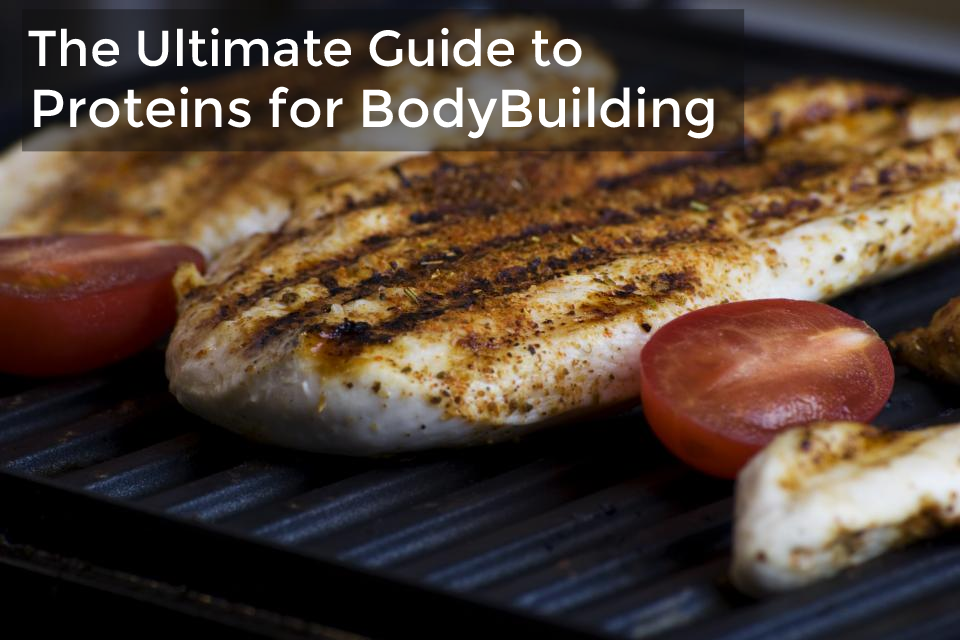The Ultimate Macros Guide to Proteins
Protein is one of the key macronutrients essential for a healthy immune, cellular and hormonal function. One gram of protein provides four calories. Your daily intake of proteins should be in accordance with the end results one is aspiring for.
The amount of protein required by the by the body of a person aiming for a weight loss is considerably different than the amount of protein required by the body of one working out heavily to build muscles.
Almost everyone knows about the importance of proteins for body building but not many are aware of the right sources, natural or supplementary, which would add greatly to your intake of proteins without compromising on your health.
The changes in diet or additional supplements that you might have heard of are not always the best and a healthy way of to add sufficient amount of proteins to your body.
While most gym instructors would suggest considerable increase in protein intake for muscle growth, the equation is not that easy.
More protein does not imply more muscles. The Journal of International Society of Sports Nutrition recommends a daily intake of 1.2g to 2.2g per kg of bodyweight for muscle building (combined with hard training and surplus calorie consumption).
Proteins are made up of amino acids which are the building blocks of muscles. A constant supply of proteins throughout the day is essential for optimum muscle growth.
Making changes in your diet plan will help you get the right amount of proteins to stimulate your body building process.
There are numerous sources of proteins but not all of them will help you get the desired results.
Whole Foods (Natural Sources)
Natural protein containing foods can also be further divided into three kinds:
High Protein Food
High Protein Foods include red meats, poultry, fish, eggs, meats, seeds, cheese, yogurt and beans. These foods contain 20% protein or more.
However consuming them in excess wouldn’t be beneficial and might instead cause intestinal auto-intoxication.
Medium Protein Food
Medium Protein Foods include grains such as rice, wheat, oats, millets and barley. They contain only 6% – 14% proteins and are therefore an incomplete source.
Such foods should be combined with other proteins rich foods to fulfill daily requirement.
Low Protein Foods
Low Protein Foods include fruits, vegetables and juices. These contain less than 5% protein.
Relying on a low protein diet is not helpful for any active person let alone one trying to build muscles. Still, they can always be used as an additional source of protein.
While there are a range of natural sources of proteins to choose from, most body builders are recommended supplements for a quick benefit.
Protein Supplements
These include protein powders, protein bars, meal replacements, pre-digested or hydrolyzed proteins and amino-acid supplements.
However not all of these supplements are as safe as the natural ones. While some are harmful, others are misleading! The most popular protein supplements are Soy and Whey.
Whey Protein
Whey Protein serves a number of potential health benefits. Whey helps to lose a significant amount of body fat and preserve muscles. It also increases muscle strength by increasing fat free mass in the body.
Research shows that a regular intake of whey protein helps fight stress and cancer and strengthens the immunity system as well.
Whey definitely has a lot of benefits. However a little known fact is also that it contains toxic forms of nickel and copper.
In fact when taken with a smoothie or a shake, as suggested to beginners by many gym instructors, Whey tends to form bad food combinations.
Soy Protein
Soy milk is used as another low-fat high-protein substitute of dairy products. The most popular protein drinks and bars are often made from soy.
Soy however is not a particularly high quality source of protein even though technically it is a complete protein.
Soy is always processed for human consumption which damages the protein structure a lot. It also contains too much copper, low zinc, enzyme inhibitors, thyroid inhibitors and other toxic residues.
The disadvantages of popular protein supplements cannot be overlooked in the face of their short term benefits. Being aware of what you consume and how it impacts your body is the most essential move towards building a great physique.
Therefore relying solely on protein supplements on your shortcut to body building is not that great an idea.
Scott Baphi, a physique and sports nutrition specialist and a natural body builder also suggests the same. According to him one should:
“Aim to consume a range of protein-rich foods with as much variety as you can, including meat, fish and dairy products. If a vegetarian, you can replace the meat and fish with beans and pulses.
Mixing up your protein sources will help to ensure you benefit from a range of amino acid profiles – and it will also help you keep your diet interesting.”



